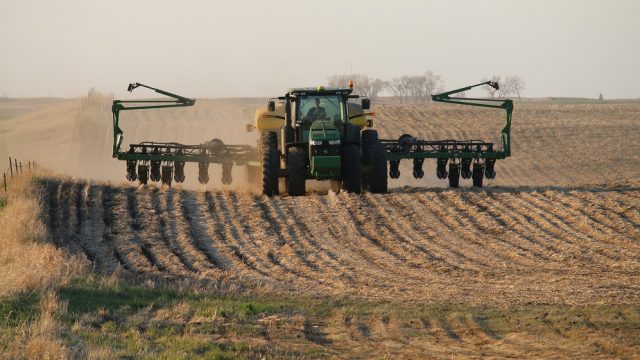It's Not Family Farms Versus Corporate Farming Because North Dakota Already Allows Corporate Farming

In a couple of weeks North Dakotans will go to the ballot box and, among other things, vote on a referendum of a law passed by the Legislature loosening North Dakota’s corporate farming ban.
Currently state law prohibits farmers and ranchers from organizing a corporation for their business except among family members. The law passed by the Legislature, and which the North Dakota Farmers Union has invested over a million bucks in referring to the ballot, allows for non-familiar corporate ownership or leasing of up to 640 acres of land for the operation of a dairy farm or swine production facility by a domestic corporation or limited liability company.
The messaging around this issue is all about family farms versus corporate farming. Case in point, this letter to the editor in favor of the referendum headlined, “Say no to ND corporate farming.”
But that’s misleading. North Dakota allows corporate farming. We’ve just put absurd and arbitrary restrictions on it.
Here’s the law setting out the requirements for corporate farming as they stand now from the North Dakota Century Code. I’ve highlighted the specific family requirements, which make it so that you can’t form a corporation to farm or ranch in the state with anyone more distantly related to you than first cousin:

This seems absurd, doesn’t it?
If a group of friends from high school want to form a business to farm or ranch, they’re not allowed. If a man or woman wants to form a farming business with their same-sex partner, they’re not allowed. If a man wants to join a business with his girlfriend’s family to farm or ranch, he can’t unless they get married.
In any other type of business these sort of voluntary associations would be allowed. If you wanted to start a corporation to sell hot dogs with some guy you met yesterday at the movie theater, you’re allowed to do that. But you can’t form a corporation to grow wheat. Or raise pigs.
Think about what these restrictions mean for multi-generational farming or ranching business. Say two brothers start a ranch together. They’re allowed to form that corporation because they’re closely related. Their children will be able to maintain the corporation after their fathers die because they’re first cousins, and still closely enough related for the law. But what about the grandchildren of the ranch’s founders?
They’d be too distantly related.
That the law would prevent that third generation from continuing the business started by their grandfathers is ridiculous.
You could argue, of course, that this sort of an anecdote is far fetched. Or that there are ways to work around the law. But why should people have to work around the law? Why do we need the law at all?
Proponents of the referendum will tell stories about big, bad agribusiness coming in and taking over family farms. Yet family farms have been in decline in North Dakota for generations. The corporate farming ban hasn’t helped.
Maybe it’s time we allowed family farms the opportunity to organize themselves in ways allowable in every other type of business conducted in the state. It might just keep more of them in business.




